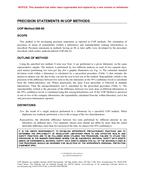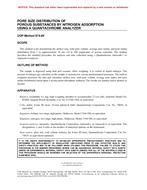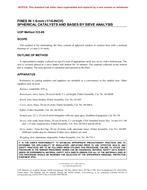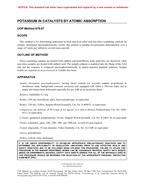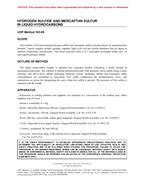This method is for developing precision statements as reported in UOP methods and relative bias of the same method between different laboratories. The calculation of precision, in terms of repeatability and intermediate precision (within a laboratory), reproducibility (between laboratories) and relative bias (between laboratories) is described. Precision statements in methods having a 98 or later suffix were developed by the procedure described; methods having an 88 through 97 suffix used UOP 888-88, while methods with suffixes earlier than 88 used UOP 666-82.
The features of UOP 999 are as follows:
Minimum of 16 analyses required with multiple concentration levels emphasis. Better identification of the components of variation and repeatability estimates. Alignment with ASTM repeatability, intermediate precision, and reproducibility definitions. Relative bias between laboratories with 95% confidence interval.
UOP 999 is the minimum guideline for estimating the initial precision for new or revised methods. Once a new or revised method is in use, a reference sample, if available, should be run on a regular basis. When 16 analyses have been completed, individual and range control charts are to be used to estimate the long-term UOP repeatability and are to be maintained on an ongoing basis. The example calculations in UOP 999 are made using Minitaba, a statistical software package. The details of the calculations are in UOP 999-97 Supplement.


